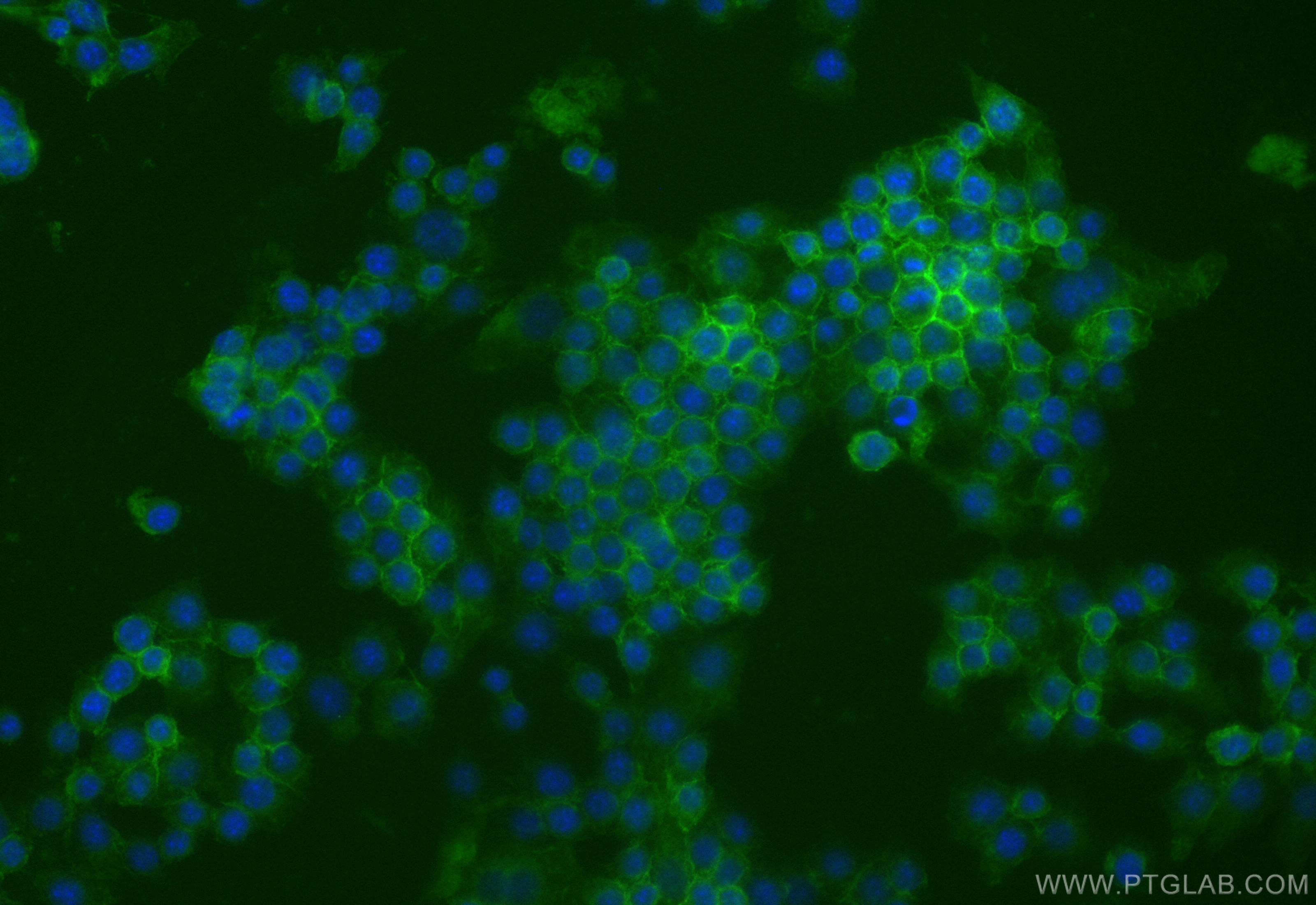验证数据展示
经过测试的应用
| Positive IF/ICC detected in | RAW 264.7 cells |
推荐稀释比
| 应用 | 推荐稀释比 |
|---|---|
| Immunofluorescence (IF)/ICC | IF/ICC : 1:50-1:500 |
| It is recommended that this reagent should be titrated in each testing system to obtain optimal results. | |
| Sample-dependent, Check data in validation data gallery. | |
产品信息
CL488-84518-3 targets CD64 in IF/ICC applications and shows reactivity with mouse samples.
| 经测试应用 | IF/ICC Application Description |
| 经测试反应性 | mouse |
| 免疫原 |
CatNo: Eg2107 Product name: Recombinant Mouse CD64 protein (rFc Tag) Source: mammalian cells-derived, pHZ-KIsec-C-rFc Tag: C-rFc Domain: 25-297 aa of NM_010186.5 Sequence: EVVNATKAVITLQPPWVSIFQKENVTLWCEGPHLPGDSSTQWFINGTAVQISTPSYSIPEASFQDSGEYRCQIGSSMPSDPVQLQIHNDWLLLQASRRVLTEGEPLALRCHGWKNKLVYNVVFYRNGKSFQFSSDSEVAILKTNLSHSGIYHCSGTGRHRYTSAGVSITVKELFTTPVLRASVSSPFPEGSLVTLNCETNLLLQRPGLQLHFSFYVGSKILEYRNTSSEYHIARAEREDAGFYWCEVATEDSSVLKRSPELELQVLGPQSSAP 种属同源性预测 |
| 宿主/亚型 | Rabbit / IgG |
| 抗体类别 | Recombinant |
| 产品类型 | Antibody |
| 全称 | Fc receptor, IgG, high affinity I |
| 别名 | 241809G4, Fcg1, Fc-gamma RI, Fcgr1, FcRI |
| 计算分子量 | 45 kDa |
| 观测分子量 | 68-72 kDa |
| GenBank蛋白编号 | NM_010186.5 |
| 基因名称 | Fcgr1 |
| Gene ID (NCBI) | 14129 |
| 偶联类型 | CoraLite® Plus 488 Fluorescent Dye |
| 最大激发/发射波长 | 493 nm / 522 nm |
| 形式 | Liquid |
| 纯化方式 | Protein A purification |
| UNIPROT ID | P26151 |
| 储存缓冲液 | PBS with 50% glycerol, 0.05% Proclin300, 0.5% BSA, pH 7.3. |
| 储存条件 | Store at -20°C. Avoid exposure to light. Stable for one year after shipment. Aliquoting is unnecessary for -20oC storage. |
背景介绍
Fcγ receptor comprise a multigene family of integral membrane glycoproteins that exhibit complex activation or inhibitory effects on cell functions after aggregation by complexed immunoglobulin G (IgG) (PMID: 17005690 ). CD64, also known as FcγRIA, is a high-affinity receptor for the Fc region of IgG. It is expressed by monocytes/macrophages, activated neutrophils, dendritic cells, and early myeloid cells (PMID: 23293080; 19642859; 7680917). CD64 functions in both innate and adaptive immune responses.


